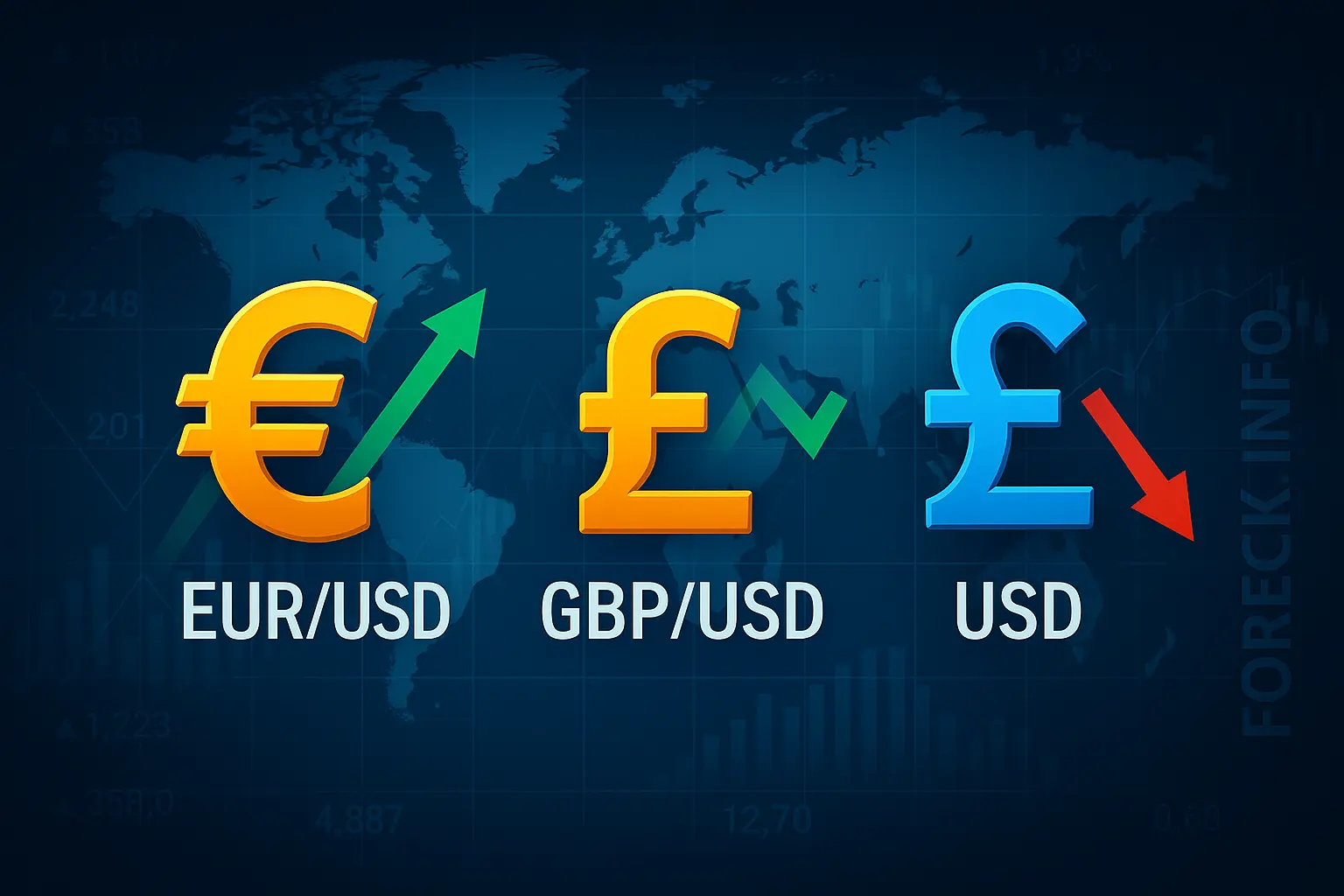Investors are assessing the likelihood of a more substantial monetary easing at the Federal Reserve meeting on September 17, following labor market data that confirmed a slowdown. Today at 16:00 (GMT+2), revised employment figures covering April 2024 to March 2025 will be released. Analysts expect a downward revision of up to 598,000 jobs, given suspicions of falsified reports tied to the dismissed Bureau of Labor Statistics official Erica McEntarfer. Such results could significantly shift the Fed’s view of labor market progress. As a result, according to the CME FedWatch Tool, the probability of a 50-basis-point rate cut has risen to 11.8% today, compared to zero just a week earlier.
Eurozone
The euro is declining against the dollar, the pound, and the yen.
On Monday, France’s National Assembly (the lower house of parliament) passed a vote of no confidence in the government of François Bayrou, with 364 deputies supporting the motion — far above the required threshold. Remarkably, Bayrou himself initiated the vote, hoping to secure backing for his 2026 budget plans, which included suspending indexation of social benefits, pensions, and tax rates. This political crisis in one of the EU’s largest economies could alter the European Central Bank’s plans to keep rates unchanged. On Thursday at 14:15 (GMT+2), the ECB will announce its policy decision, with markets currently expecting rates to remain at 2.15%, though longer-term certainty has weakened.
United Kingdom
The pound is strengthening against the dollar and the euro but weakening against the yen.
Today’s retail sales report from the British Retail Consortium (BRC) showed a 3.1% year-on-year increase in August, compared with 1.0% a year earlier and above the 12-month average of 2.0%. Food sales rose 4.7% versus an average of 3.3%, non-food sales gained 1.8% compared to 1.0%, and online sales grew 2.7% versus 1.5%, with a yearly average of 2.0%.
Japan
The yen is gaining against the pound, the euro, and the dollar.
Support for the upward trend came from comments by chief trade negotiator Ryosei Akazawa, who said U.S. auto tariffs will be reduced from 25.0% to 15.0% starting September 16, alongside new trade concessions for pharmaceuticals and semiconductors. This news encouraged investors to re-enter the yen, pushing it toward August highs.
Australia
The Australian dollar is rising against the pound, the euro, and the dollar but weakening against the yen.
According to Westpac Banking Corp., the nation’s financial conditions continue to improve gradually, although concerns about economic growth have resurfaced. Consumers are less confident about further rate cuts from the Reserve Bank of Australia, while unemployment expectations are returning to long-term levels below target thresholds. Against this backdrop, September’s consumer sentiment index fell 3.1% to 95.4 points but remains 5.9% above the April low caused by U.S. tariff restrictions.
Oil
WTI crude is attempting to consolidate above $67.00.
After OPEC+ members announced they would end voluntary production cuts as early as October, the cartel published data on excess crude output. The eight countries that pledged to cut 2.2 million barrels per day (bpd) in fact overshot quotas and must offset a cumulative 4.779 million bpd of overproduction by July 2026. Kazakhstan holds the largest share at 2.63 million bpd, followed by Iraq at 1.4 million bpd, Russia at 311,000 bpd, and the UAE at 309,000 bpd. Kazakhstan’s plan includes monthly cuts escalating from 100,000 bpd in January to 650,000 bpd by June. For 2025, monthly reductions of 10,000–35,000 bpd are expected.

